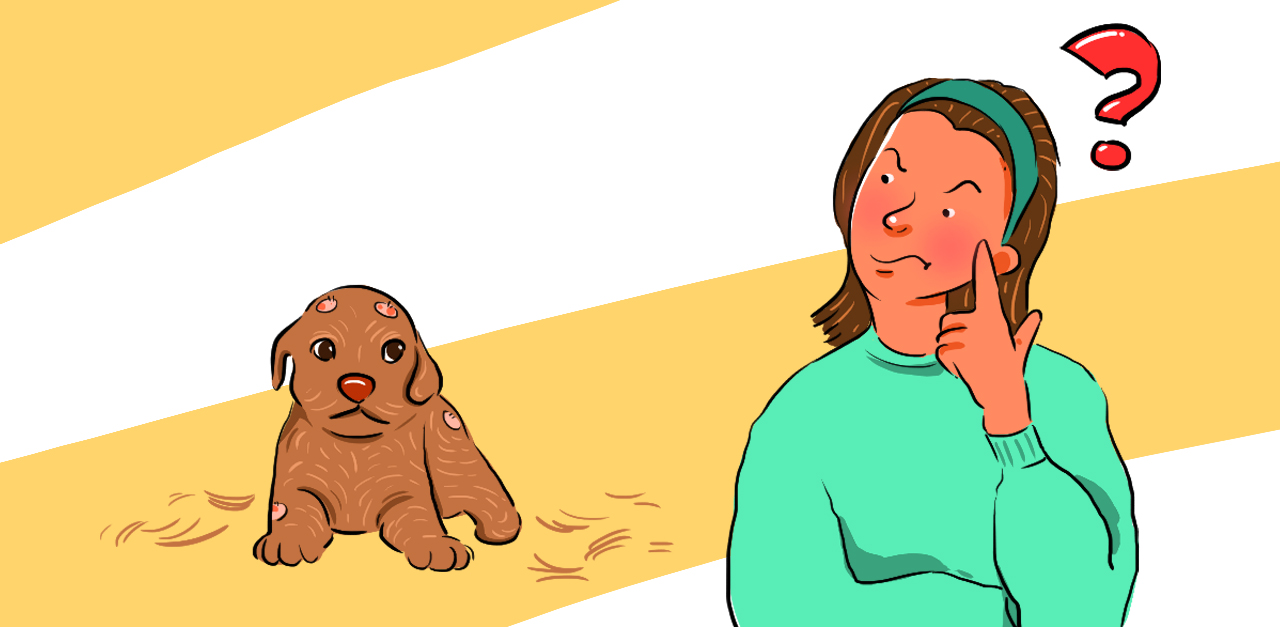
If your puppy is losing hair, you might be surprised and confused, not to mention concerned and frustrated. After all, when you got a new pet, you probably expected to be cuddling an animal that’s an adorable ball of fur. Instead, you have a creature that’s leaving countless tufts of hair all over your home. Your pup may even have developed bald spots or have large patches of missing hair, and if your dog has passed the issue onto other pets in your home, you might have a problem that needs to be contained immediately.
While the situation may be alarming, there are various reasons that could explain the problem. From diet-related issues and airborne allergies to infestations and infections as well as disease, it’s important to be aware of the causes of hair loss so that you can pinpoint what particular issue your pup is dealing with — which will help you narrow down how to help them regrow their coat.
In order to do that, see below to check out the causes of puppy hair loss and then read on to find out how to deal with each one so that your puppy can get back to their adorable fuzzy self.
Normal Shedding
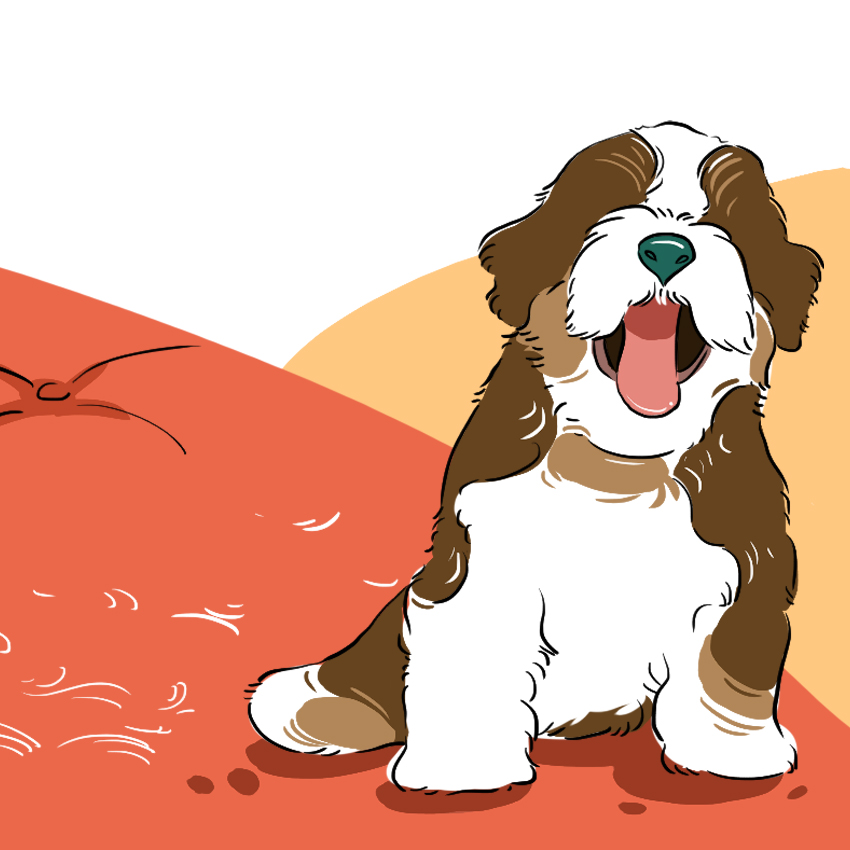
Before you get too concerned about the fact that your puppy is losing hair, be sure that it’s not just the regular shedding that most dogs do. While there are nonshedding and hypoallergenic breeds, most other dogs will shed a fair share of their hair each season in order to get rid of a thicker or older coat, while other pups will continue to shed loose hair year-round.
Poor Or Improper Nutrition
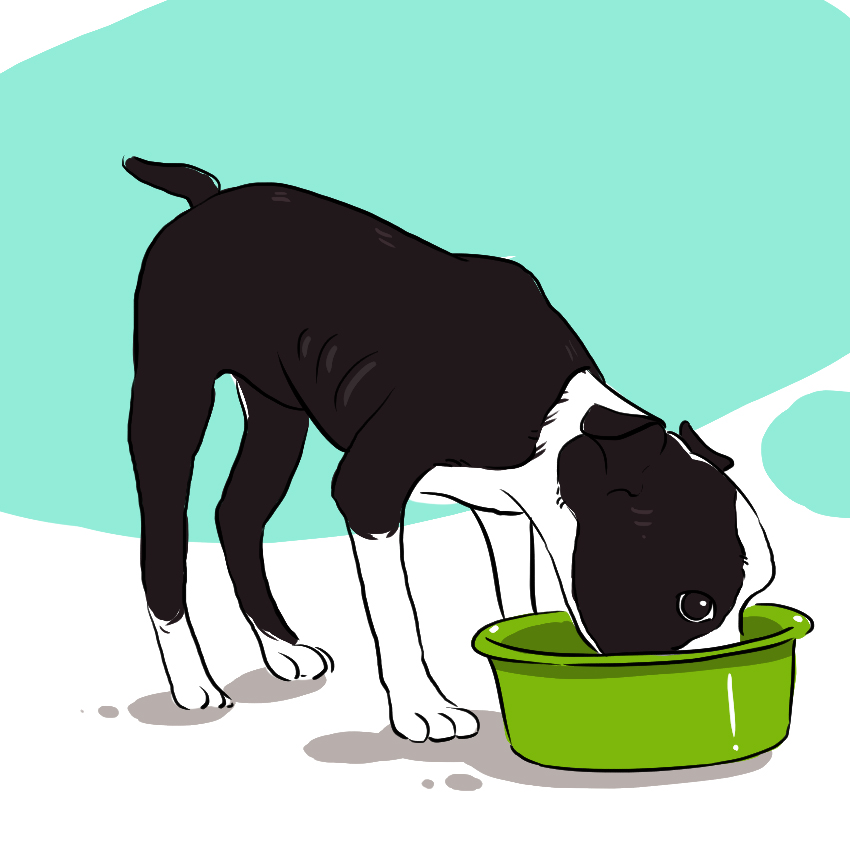
Your young dog needs to receive proper nutrition in order to grow big and strong, as well as to develop a healthy coat. If your pup isn’t getting the right kind of food, they may display certain signs and symptoms of poor nutrition, such as weight loss, dental issues, and hair loss.
If you’re not sure if you’re feeding your pet the proper puppy food, you can first check out the labels on the packages when you go shopping to make sure that it indicates what breeds and size of dog it best suits, and also what vitamins and nutrients it’s providing your pup. (You’ll want to make sure it offers things like vitamin D, calcium, and plenty of protein.) If you’re still unsure, it’s best to ask your veterinarian for some advice.
Allergies
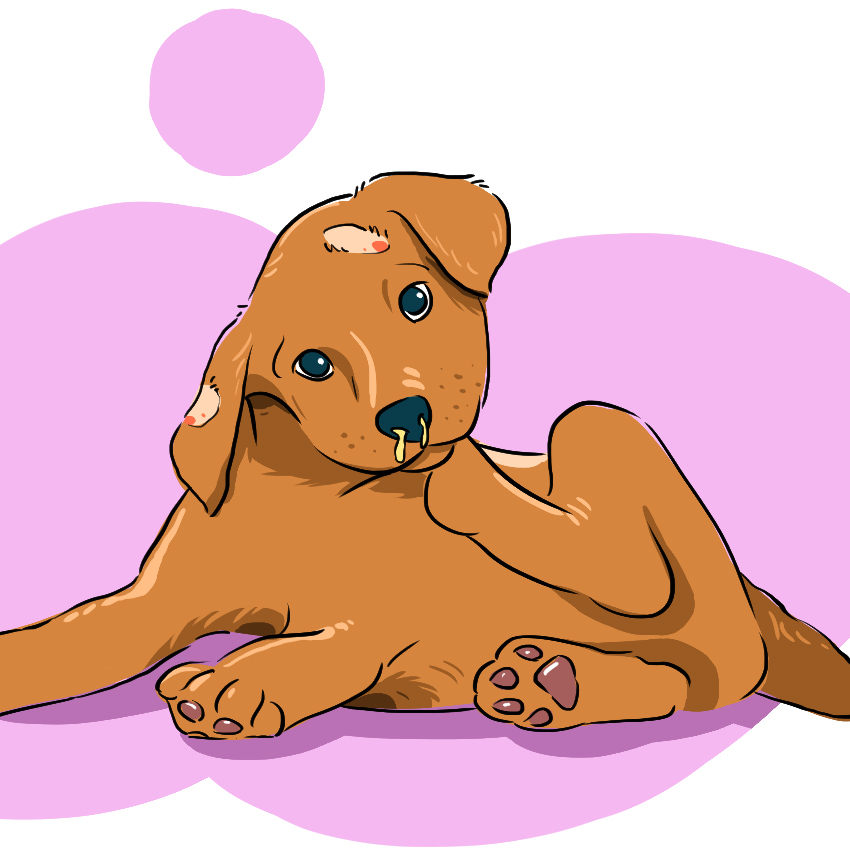
Just like humans, dogs can suffer from allergies and, as a result, can find themselves sickly, itchy, and losing hair. Your puppy might be reacting to something in their environment, such as a blanket that’s been washed with a detergent that's not hypoallergenic, or even airborne irritants like pollen and mold.
Mange
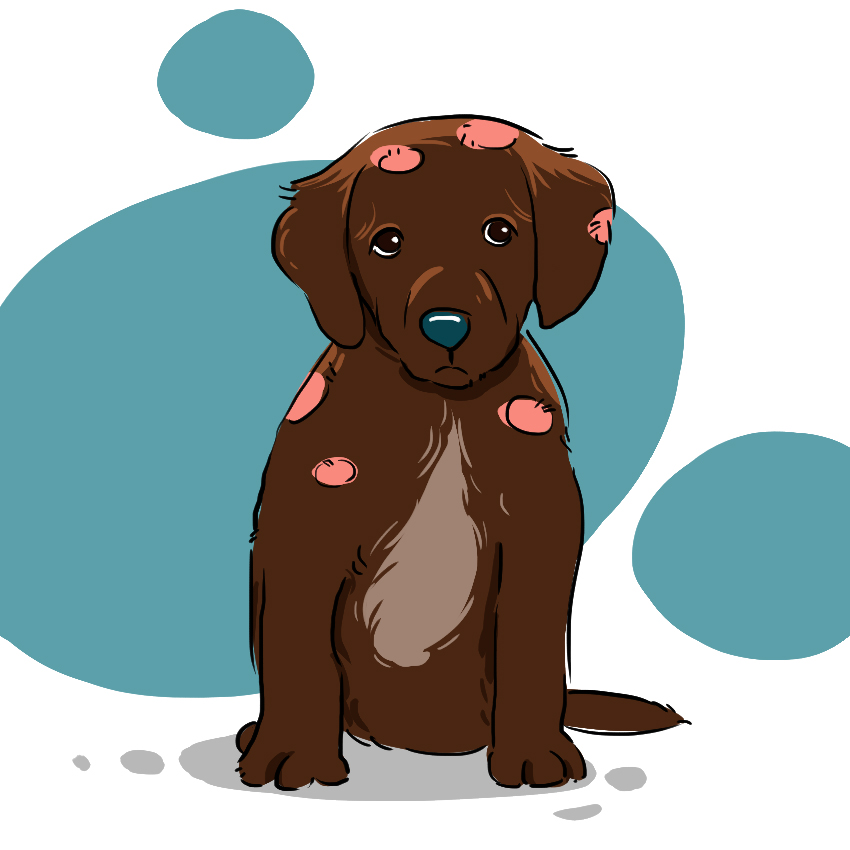
If you’ve ever heard of the expression that refers to an unfortunate animal as a “mangy mutt,” then you’re aware of mange. A term that refers to skin diseases that are caused by mites, there are actually two major kinds of mange, according to the American Kennel Club: Sarcoptic Mange (also known as scabies) and Demodectic Mange (also known as red mange or Demodex). Both types of mange can lead to symptoms such as a rash, bacteria, and yeast infections, as well as itchiness, which results in hair loss when your puppy desperately scratches itself.
Fleas
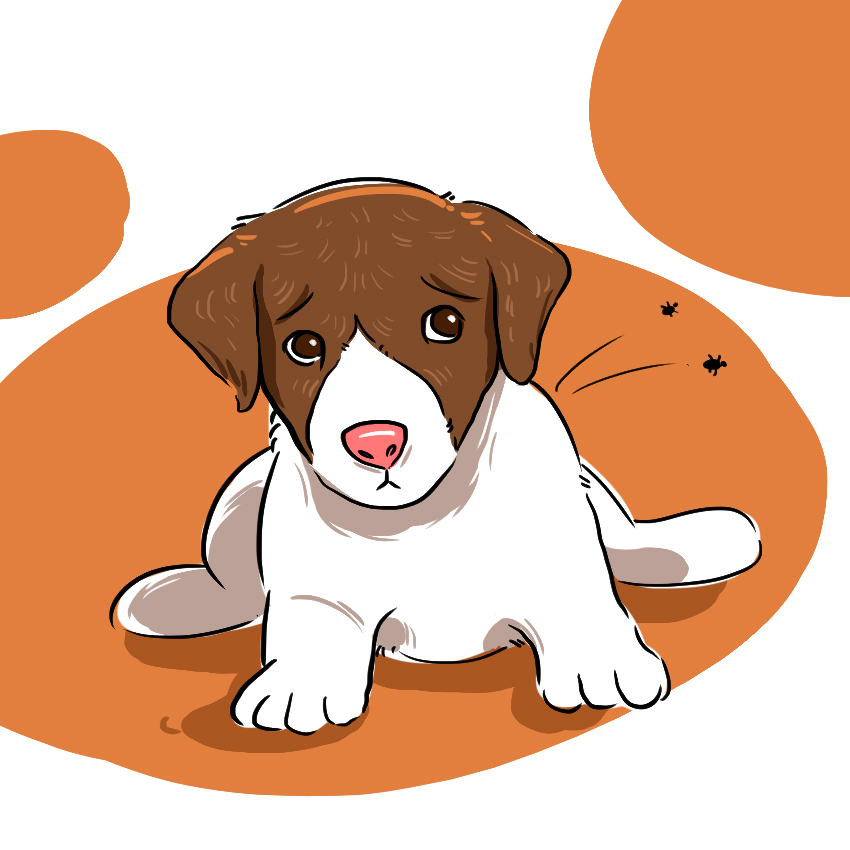
"Fleas" is a dreaded word for dog owners. The tiny creatures are an incredibly big nuisance for both you and your pup. If your puppy has picked up fleas, you’ll notice them scratching at themselves and you might see bald patches and redness around your dog’s ears, eyes, belly, and chest. If you take a peek at your dog’s skin, you might even be able to spot the fleas crawling on your puppy or attempting to hide in their fur, which is nasty but will confirm that you’re definitely dealing with a flea infestation.
Ringworm And Other Parasites
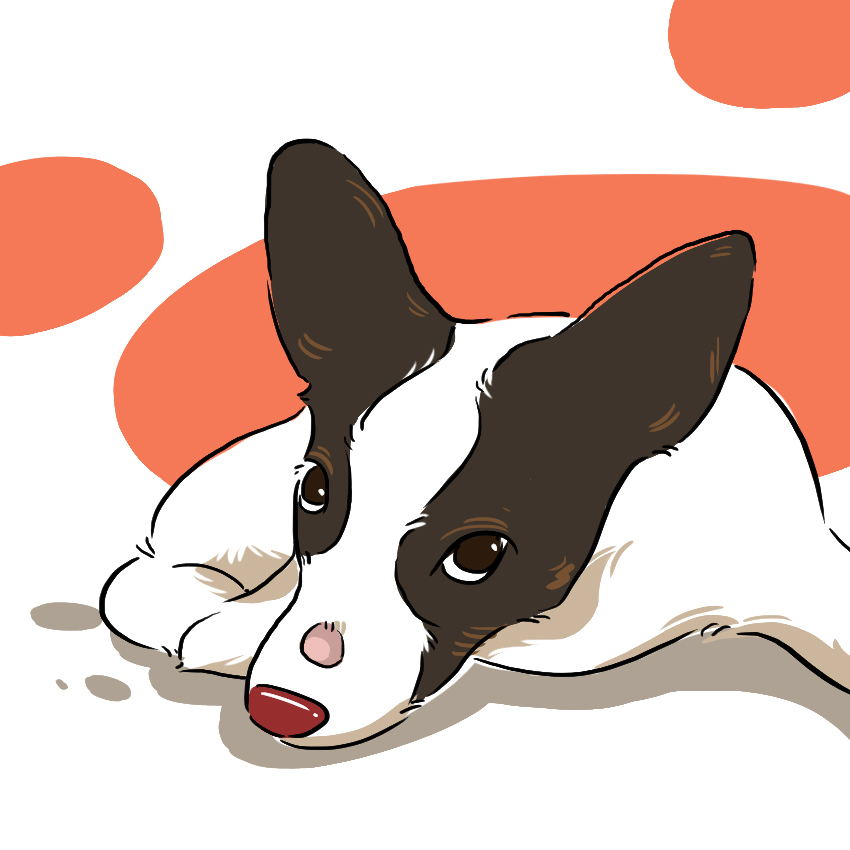
Just like fleas, the idea of puppy worms is incredibly icky. However, it’s a reality that some pet owners need to deal with. Your dog can contract parasites such as ringworm by picking it up from another infected animal or by being in contact with something like a couch, carpet, or blanket that’s been exposed to the parasites.
If your puppy has ringworm, you may notice that your pup has skin that is oily, inflamed, and itchy. They may also experience hair loss around their ears, eyes, and mouth, as well as other areas. Ringworm is contagious and can be passed on to your other pets, so it’s something that you’ll want to address right away.
Infection
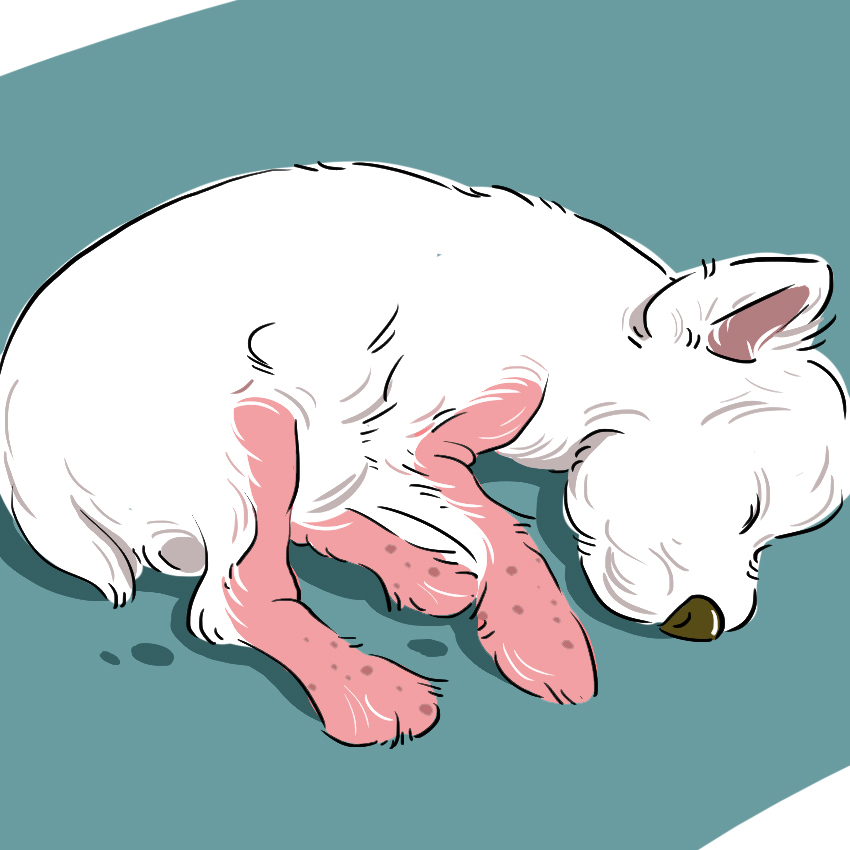
Various kinds of infections — both bacterial and fungal — can also torment your poor puppy and cause their hair loss. If your dog is not only missing patches of fur but is also suffering from other unpleasant symptoms, such as growths and bumps on their skin that may have pus or areas that are red and possibly scaling, they may have an infection that needs to be identified and treated.
Hormonal Issues
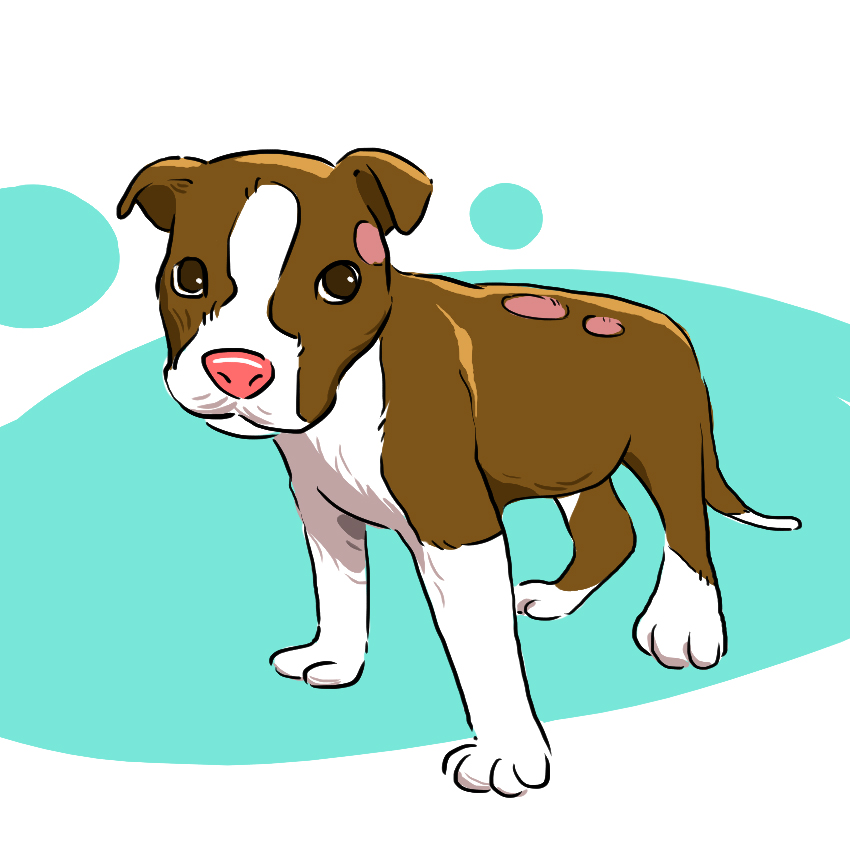
Your puppy’s hair loss could also be a sign that your dog has a hormonal issue that is throwing their system out of whack. Dogs can deal with thyroid disorders, pituitary issues, as well as adrenal gland deficiency — and each can cause progressive and continual hair loss if not corrected.
Disease
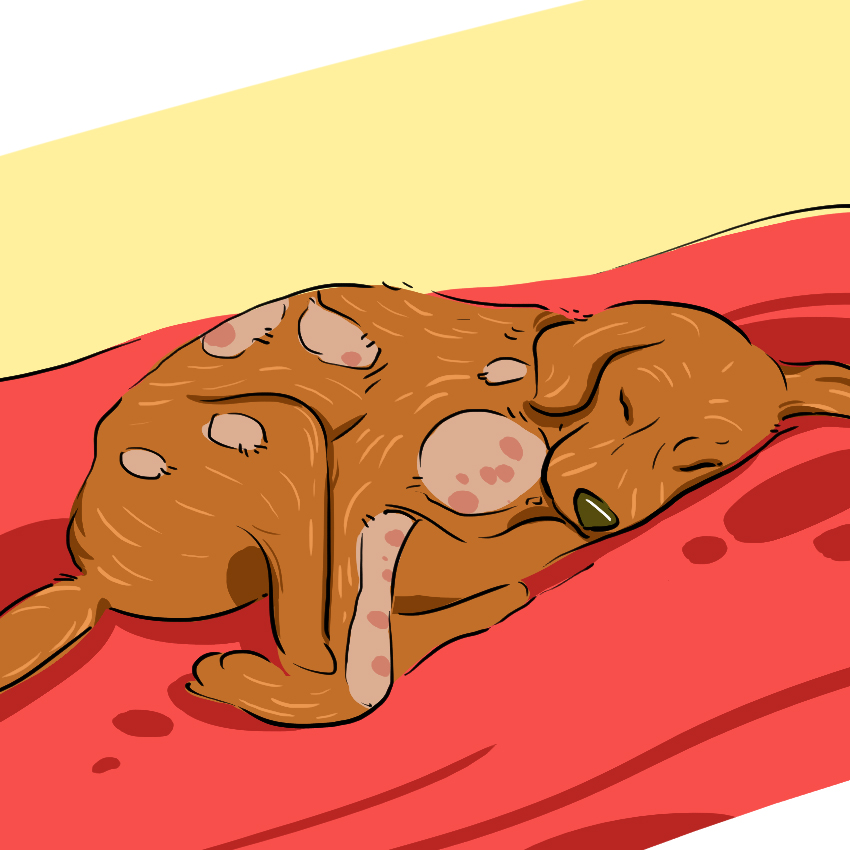
Your puppy’s hair loss may also be caused by something more serious than simple shedding or allergies, such as a disease. According to Pet Helpful, some diseases that result in hair loss in dogs include autoimmune diseases, as well as acanthosis nigricans, sebaceous adenitis, zinc-responsive dermatosis, blue Doberman syndrome, and black hair follicle dysplasia.
Dealing With Normal Shedding
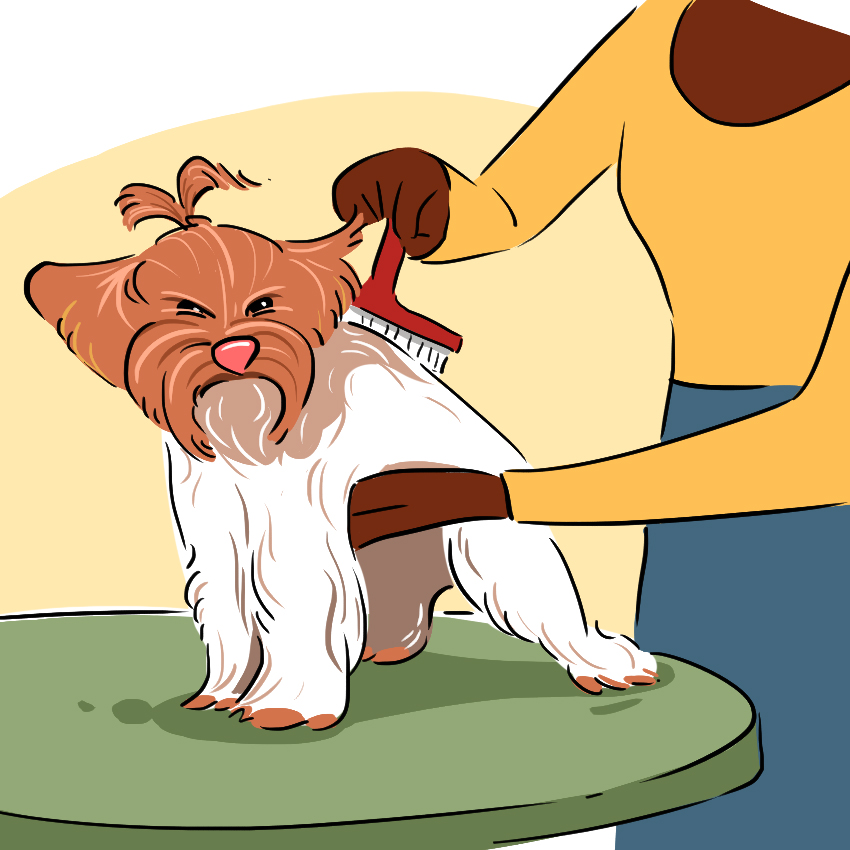
In order to deal with normal shedding, you merely need to give your puppy regular baths and brush them just as often if they have a short coat and perhaps twice as often (or daily, if you're up for the task) if they have longer hair.
If your dog is a breed that boasts a particularly thick coat or one that requires special care — such as a poodle, a bichon frise, a komondor or a puli — then you can take them to a groomer a few times a year to make sure that their coat stays nice and healthy and doesn’t end up matted, filthy, or all over your home.
Dealing With Allergies
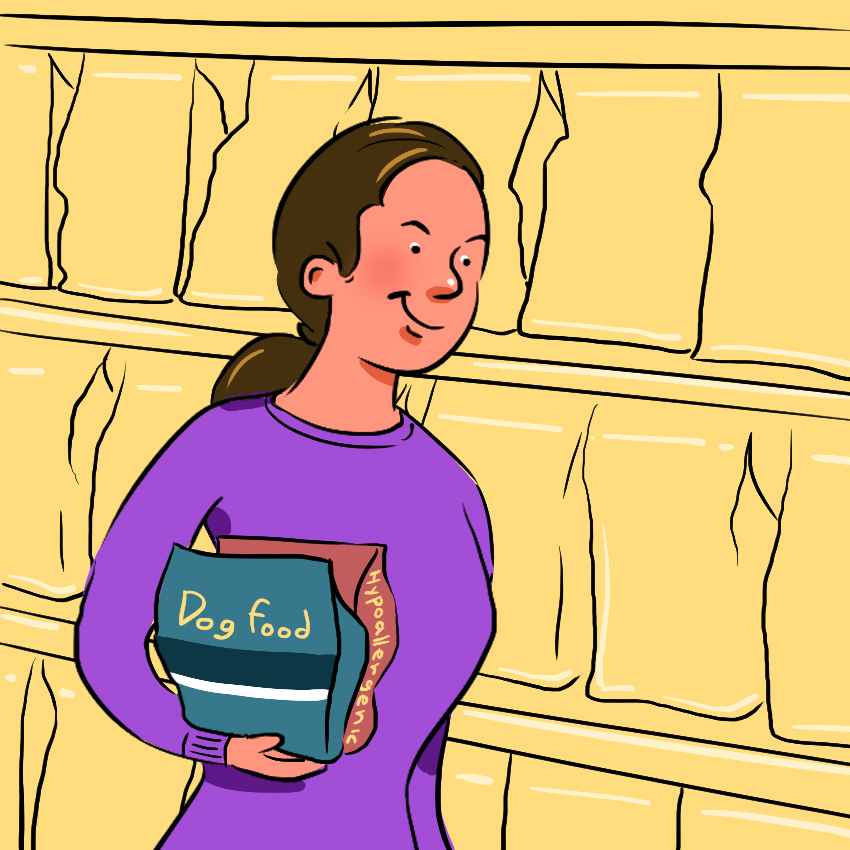
If you suspect that your puppy might be having an allergic reaction, you can try switching up the type of food you’re giving them (try eliminating food that includes things like wheat, corn, soy, eggs), as well as the bowl or dish you’re using to feed them.
If that doesn’t work or you don’t think the problem is related to their food, then try washing their bed and/or blanket in a different kind of detergent (try something hypoallergenic) and perhaps skip the fabric softener.
If you suspect that your puppy is suffering from a reaction to pollen or if your efforts to figure out what the issue is hasn’t resulted in any answers or solutions, then schedule a visit with your vet to figure out what the problem is, and to discuss what you can do to help relieve your pup’s symptoms.
Dealing With Mange
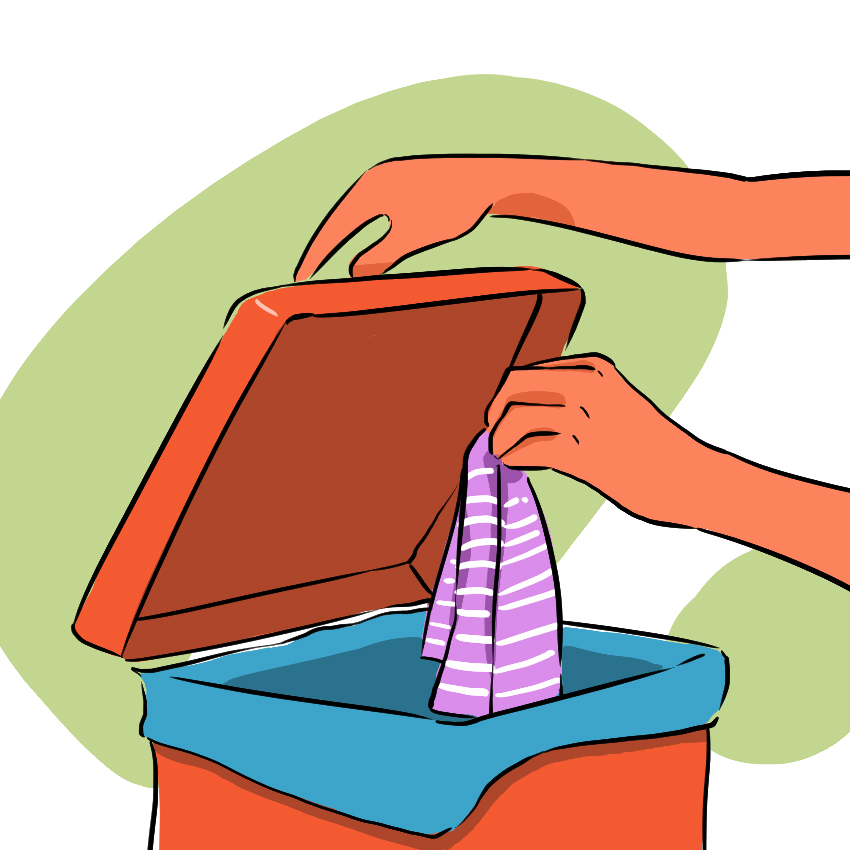
There are a few things that you need to do if your dog has mange. First, visit your vet so that they can take a look at the situation and help you come up with a plan for treatment. You’ll most likely end up with oral medication for your dog, and possibly an ointment for their skin to help relieve the itchiness and discomfort. Be sure to follow your vet’s instructions and stick to the medication they prescribe — mange can be serious and alternative treatments can be fatal.
Beyond that, you’ll need to get rid of anything that might carry the infection, such as your puppy’s bed, blankets, collar, leash, and even plush toys.
Dealing With Fleas
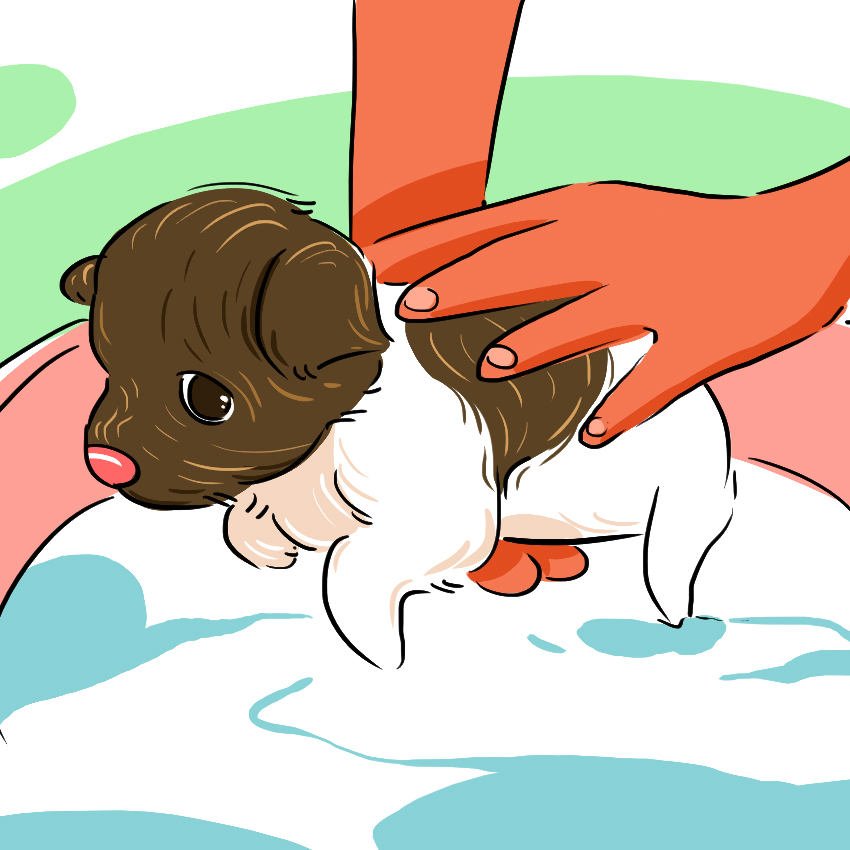
If your puppy is dealing with a flea infestation, you’ll want to tackle the issue right away; otherwise, it will continue to get worse as the creepy critters multiply. There are a number of steps that you can take to help your pup get rid of the nasty bugs, including giving them a bath with a special shampoo and using a flea collar, as well as tracking down the source in order to rid your home of the teeny-yet-terrible creatures.
Dealing With Parasite, Infection, Hormonal Issues, And Disease
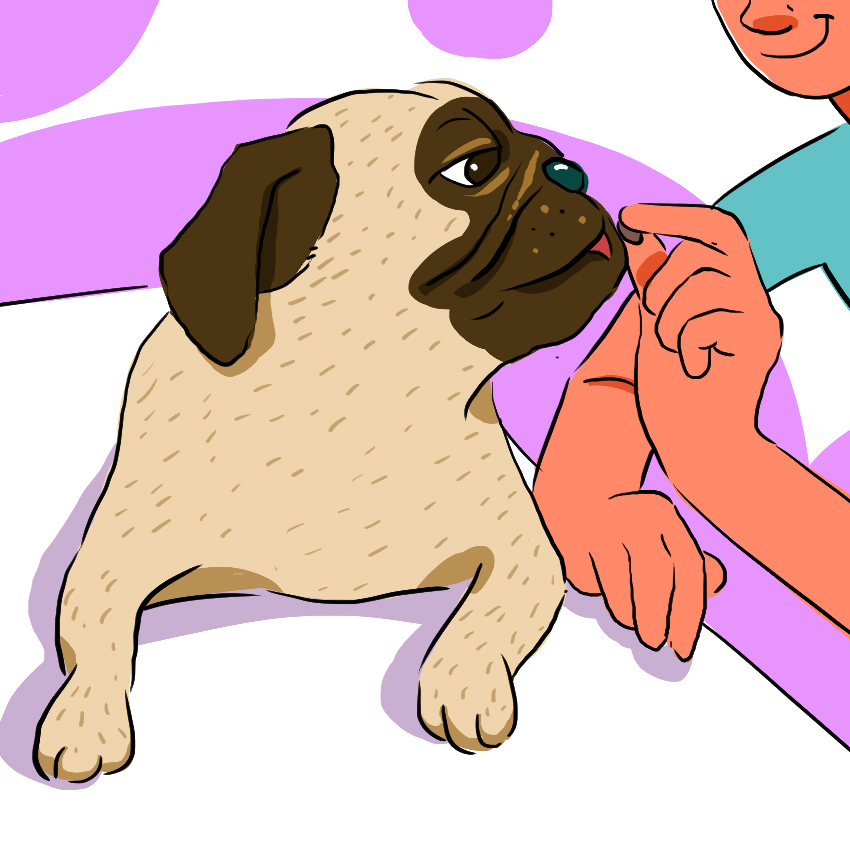
Seeking a diagnosis, treatment, and advice from your vet is the best course of action if you’re worried that your dog’s hair loss may be related to parasites, an infection, hormonal issues, or disease. Your dog’s doctor can jump on any issues that may be an emergency, offer help when it comes to your puppy’s immediate issues, and offer options for ongoing treatment that will allow your pup to heal, get healthy, and regrow their adorable hair so that they can once again truly be your fur baby.




